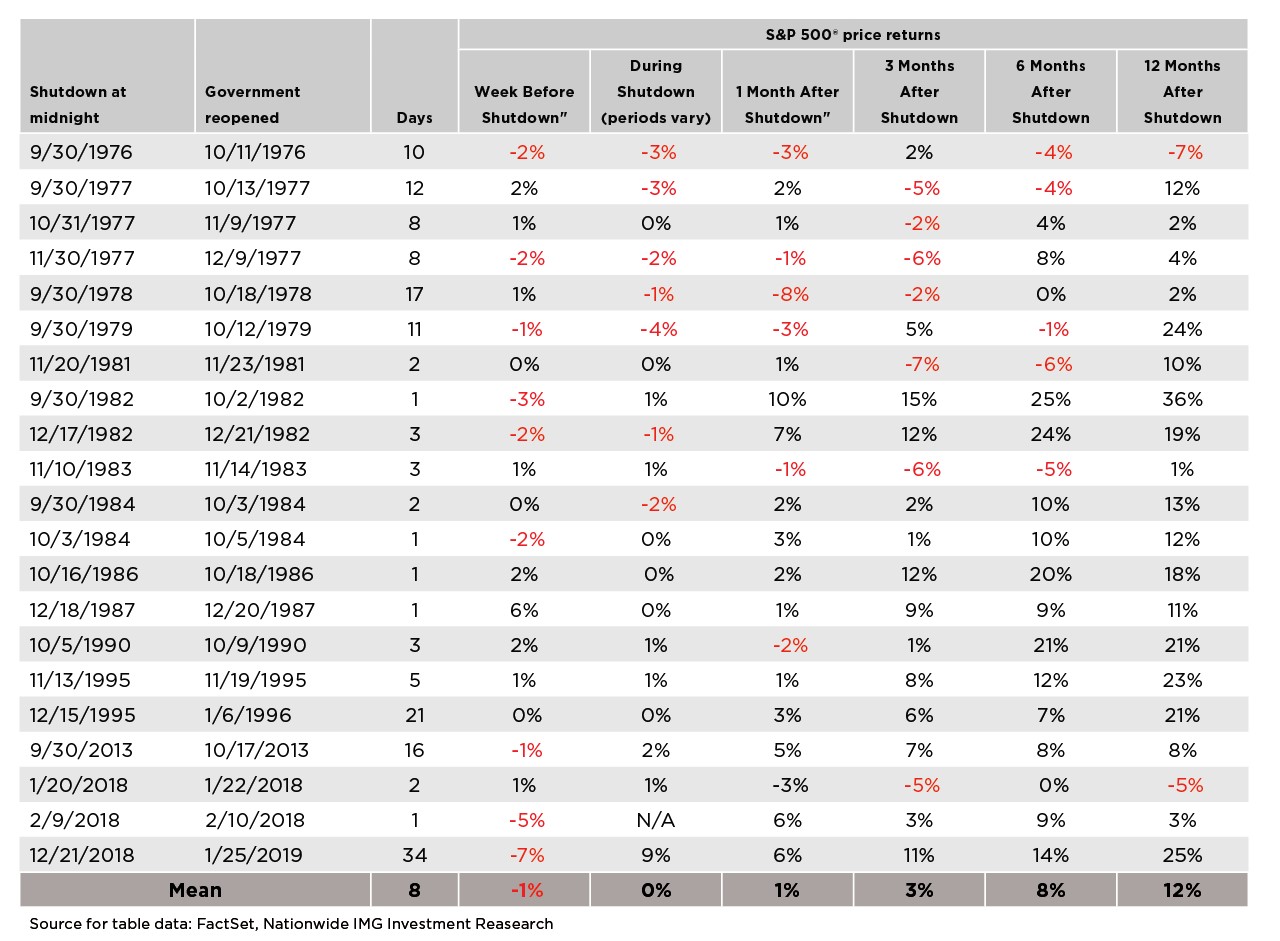Shifts in stock market leadership can be extreme
Small caps have led the market recently, taking over from large caps. What will it take for the rally to continue?

The federal government avoided a shutdown over the weekend as brinksmanship saved the day again. In reality, the deal that emerged on Saturday only deferred decisions on government funding for the next fiscal year until mid-November, when all parties involved will presumably take the country up to the brink again.

Government shutdowns are unambiguously negative for the economy due to delayed services and deferred wages for federal workers. According to the Congressional Budget Office estimates, the partial government shutdown in late 2018 and early 2019, the longest in U.S. history, cost the economy roughly $11 billion. Given that past shutdowns have been short-lived, their economic impacts have been limited, with only minor declines in real GDP growth caused by the disruption to government operations. Federal workers have received lost pay once funding was resumed, which eventually evened out the income effects for the economy.
When the next shutdown drama plays out 45 days from now, the economy will still face the same risks from a weakening consumer, rising oil prices, and restrictive monetary policy. As an investor, a constant melody of warnings about potential risks that could impact the economy or financial markets can weigh on sentiment. This is the second time investors have endured political brinksmanship this year, with the previous standoff involving months of partisan bickering over increasing the debt ceiling. While the country pauses before the next round of political brinksmanship begins, it’s an excellent time to consider what a government shutdown could mean for the stock market.
The accompanying table shows that past government shutdowns have not significantly impacted the stock returns. From an investor standpoint, government shutdowns (or at least the threat of shutdowns) may create anxiety, but they haven’t necessarily sparked a severe downturn in the stock market.
History shows that equity markets have proven resilient during these periods. For instance, stocks have appreciated in more than half of the previous government shutdowns (when the federal government was closed). And 12 months after these past shutdowns, stocks were higher 90% of the time. But as is the case whenever citing market history, investors should not assume past trends will continue in the future.
For the economy, the potential for a government shutdown in November adds to the economic headwinds for the fourth quarter, along with the UAW strike and the resumption of student loan payments. Nationwide Economics projects a sharp slowdown in economic activity in the fourth quarter, likely a precursor to an eventual modest recession in the first half of 2024. For stock investors, however, history supports staying invested long-term and avoiding the temptation to trade in and out of the market when anxiety builds.
This material is not a recommendation to buy or sell a financial product or to adopt an investment strategy. Investors should work with their financial professional to discuss their specific situation.
Except where otherwise indicated, the views and opinions expressed are those of Nationwide as of the date noted, are subject to change at any time and may not come to pass.
S&P 500® Index: An unmanaged, market capitalization-weighted index of 500 stocks of leading large-cap U.S. companies in leading industries; it gives a broad look at the U.S. equities market and those companies’ stock price performance.
S&P Indexes are trademarks of Standard & Poor’s and have been licensed for use by Nationwide Fund Advisors. The Products are not sponsored, endorsed, sold or promoted by Standard & Poor’s and Standard & Poor’s does not make any representation regarding the advisability of investing in the Product.
Nationwide Funds are distributed by Nationwide Fund Distributors LLC, member FINRA, Columbus, Ohio. Nationwide Investment Services Corporation, member FINRA, Columbus, Ohio.
Nationwide, the Nationwide N and Eagle and Nationwide is on your side are service marks of Nationwide Mutual Insurance Company. © 2023 Nationwide
NFN-1526AO